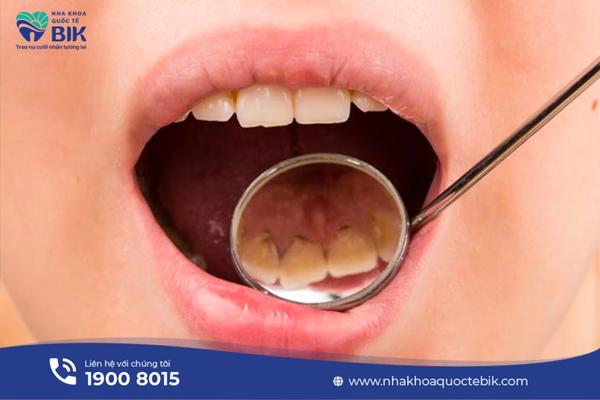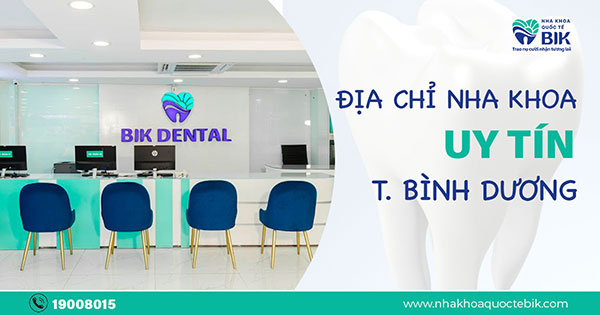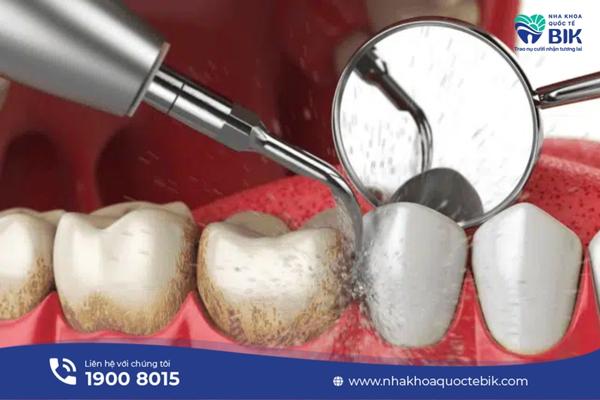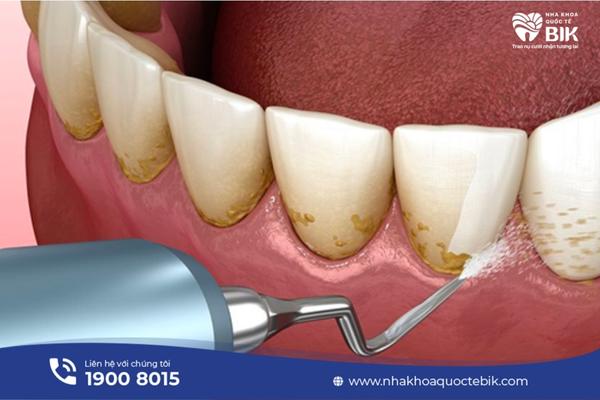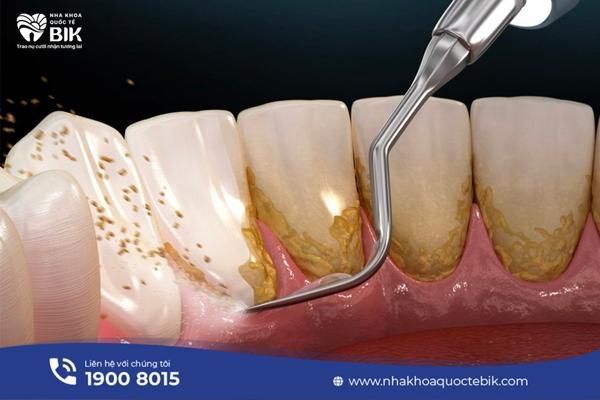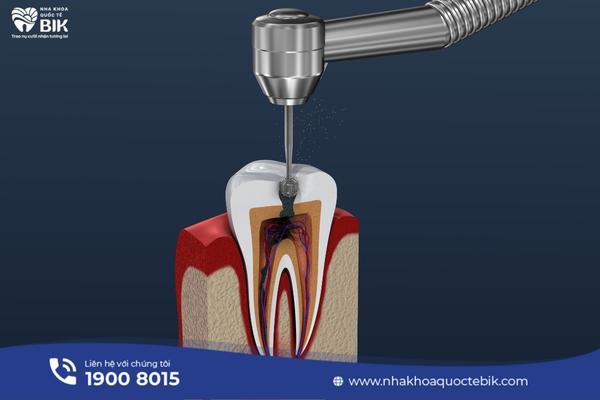Nowadays, as technology is increasingly developing, porcelain crowns have been born and become a beauty solution that many people prioritize to choose for cosmetic dental restoration. However, not all cases of porcelain crowns will bring successful results if the treatment method is not correct. You should pay attention to the following symptoms after porcelain crowns to know which are dangerous complications that affect your oral health.
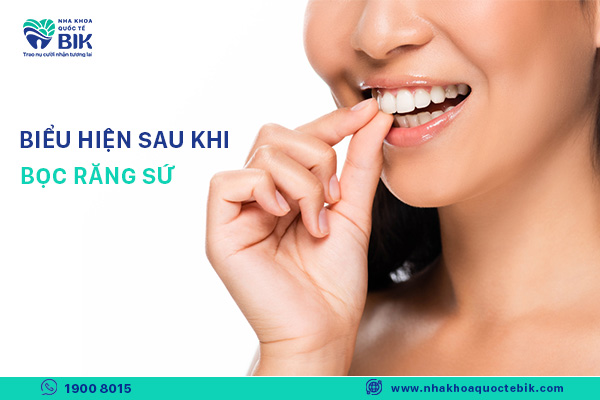
1. 6 most common symptoms after porcelain crowns
In the early stages after porcelain crowns, most customers will experience at least one of the following symptoms. Don’t worry too much if you experience these symptoms after porcelain crowns, because these are normal symptoms that will end soon in a short period of time, Specifically:
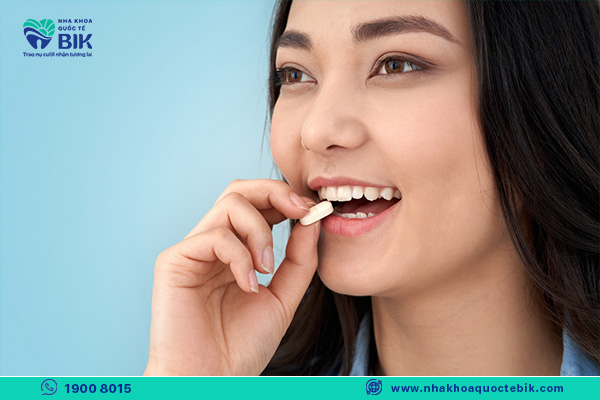
Itchy gums
Itchy gums come from grinding the tooth stump deeper than 1mm (to avoid blackening of the tooth neck and food stuck in it). This phenomenon creates a slightly uncomfortable feeling in the gum area about 1 week after the dentist attaches the porcelain crown to the tooth stump.
Gum discoloration
When the gum area is too sensitive, there will be a slight darkening of the gums after the porcelain crown is applied. And don’t worry too much about this phenomenon because the gums will recover after a few days.
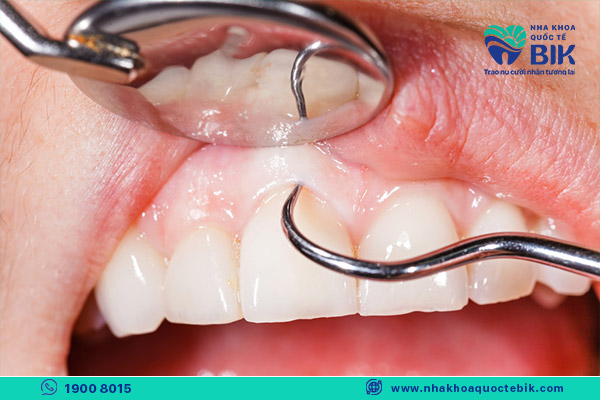
Feeling of discomfort in the gum area
During the initial period of porcelain crowns, you will feel uncomfortable and uncomfortable when eating and drinking.
Teeth sensitivity during 24h
This is a feeling that many people often experience after porcelain crowns, due to the action of grinding the teeth, causing the nerves and reflexes to be stimulated, causing a feeling of pain. Usually, this feeling will last from 1 to 2 days and then go away completely.
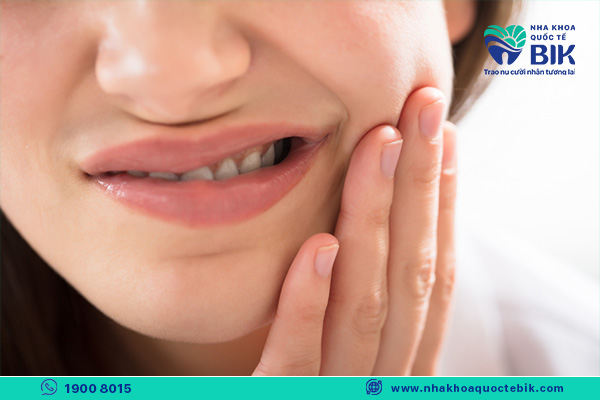
Sensitive teeth
These symptoms will appear when you eat hot or cold foods, or when chewing foods that are too hard, you will feel more pain.
Uncomfortable feeling when eating and drinking
Because the chewing force has to change, it is not the same as before, so while eating and drinking, you will feel that biting, tearing or chewing food becomes more difficult. This will make you feel uncomfortable for a short time, so don’t worry too much, it will affect your health.

2. What to do when you experience strange symptoms after porcelain crowns
Most people after porcelain crowns have at least one of the above symptoms. And these are all completely normal symptoms that will go away after a few days, so don’t worry too much.
However, if these symptoms last too long after porcelain crowns, you need to pay attention and see a doctor immediately to check the cause as well as the specific oral condition. Depending on each case, the doctor will prescribe the appropriate treatment method.
3. Dangerous symptoms after porcelain crowns you should pay attention to
Porcelain crowns do not affect the structure of the teeth or the soft tissues in the oral cavity. However, there are still cases facing dangerous complications after porcelain crowns due to allergies to porcelain materials, incorrect procedures or patients not taking proper care, etc. such as:
Swollen or purulent gums
This is an abnormal symptom and you need to pay special attention. In case the gum area shows signs of gingivitis, swelling and redness accompanied by prolonged pain. You need to notify your doctor immediately to quickly fix the infection.
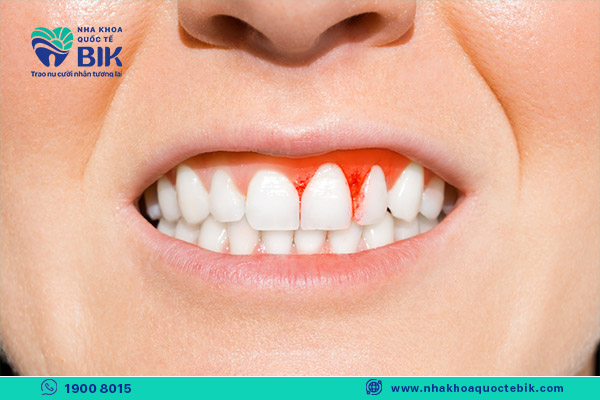
Bite discomfort when chewing
When newly installed porcelain teeth can be loose, misaligned, or not fit properly, it is due to the lack of professionalism and poor skills of the doctor performing the procedure. However, it is also possible that you eat something too hard, causing strong chewing force, causing the crown to become loose and out of position. If this condition is not treated promptly, it will cause dangerous oral health problems.
Bad breath
Bad breath comes from the reason that the porcelain material you choose is not guaranteed or you are allergic to some ingredient in the porcelain teeth. Bad breath can also be caused by the inflammation on the gums. At the same time, if you take care of your oral hygiene incorrectly, unscientifically, it can also cause unpleasant bad breath.
Pain, sensitivity
Prolonged tooth sensitivity and pain cause discomfort, affecting chewing function and quality of life. If not detected early, once the real tooth root inside is severely damaged, you will lose teeth, have severe pain and even form abscesses. In these cases, tooth extraction is required to avoid affecting and maintaining adjacent teeth.
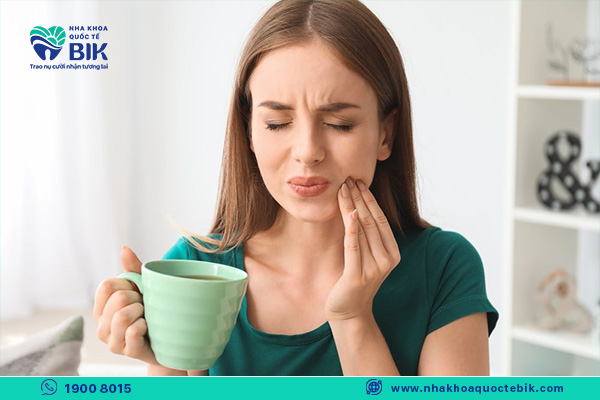
.See more: Notes when covering porcelain teeth and unpredictable complications when covering poor quality porcelain teeth
4. Pay attention to how to care for your teeth after porcelain crowns
To limit complications and risks when having porcelain crowns, you can apply some of the following notes:
Reasonable diet
Avoid foods that are hard or chewy, too hot, too cold. Limit foods that contain a lot of acid and dyes that are harmful to tooth enamel.
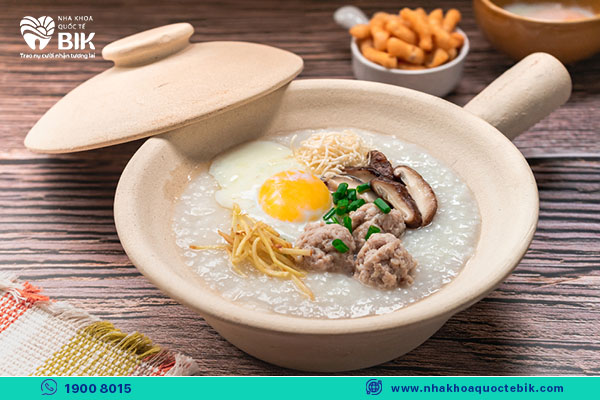
Proper oral hygiene
Brush your teeth twice a day on average with a soft-bristled toothbrush. Note that you should not brush your teeth too hard. Use toothpaste with the right amount of fluoride combined with dental floss and mouthwash as directed by your dentist to deeply clean away plaque and food debris on your teeth.
In addition, avoid biting too hard as this can cause your teeth to chip, break or crack.
Do not smoke
Smoking is the leading cause of yellow, discolored teeth. Because the nicotine in cigarettes, when left on for too long, will create plaque and discolor porcelain teeth.
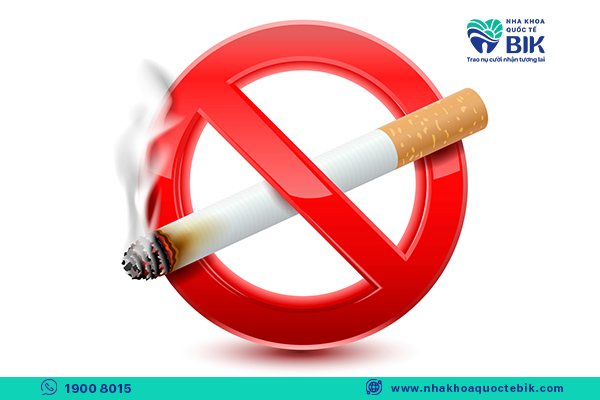
Gently massage the gum area
You can gently massage the gum area to help blood circulate well. However, remember to wash your hands and rinse your mouth thoroughly before and after massaging your gums.
Regular dental check-ups
Have regular check-ups every 6 months so that the dentist can remove tartar and clean bacteria in the oral cavity, and check the current condition of the porcelain teeth and make timely adjustments.
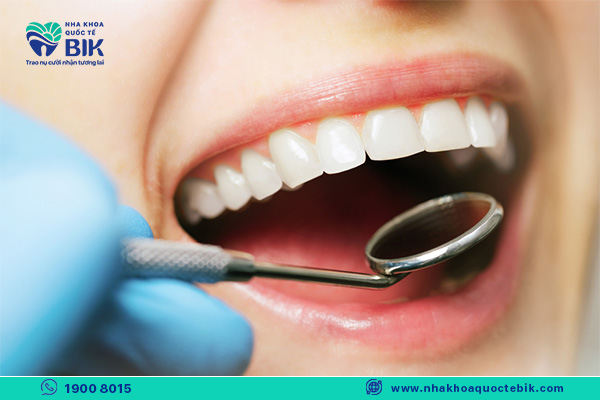
Porcelain crowns are a safe and effective method of tooth restoration. However, there are still many unpredictable complications that directly affect oral health. During use, if your porcelain teeth show abnormal symptoms such as pain, prolonged tooth sensitivity, or discomfort or cracks. We recommend that you go to the nearest dental clinic immediately for a doctor to examine and provide timely treatment.


